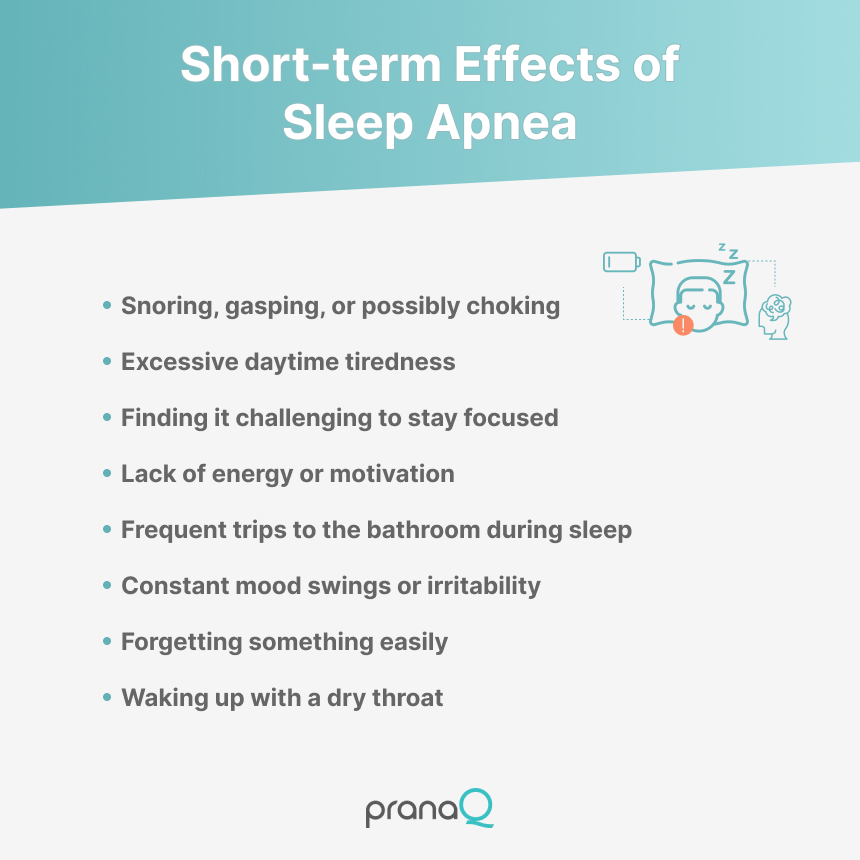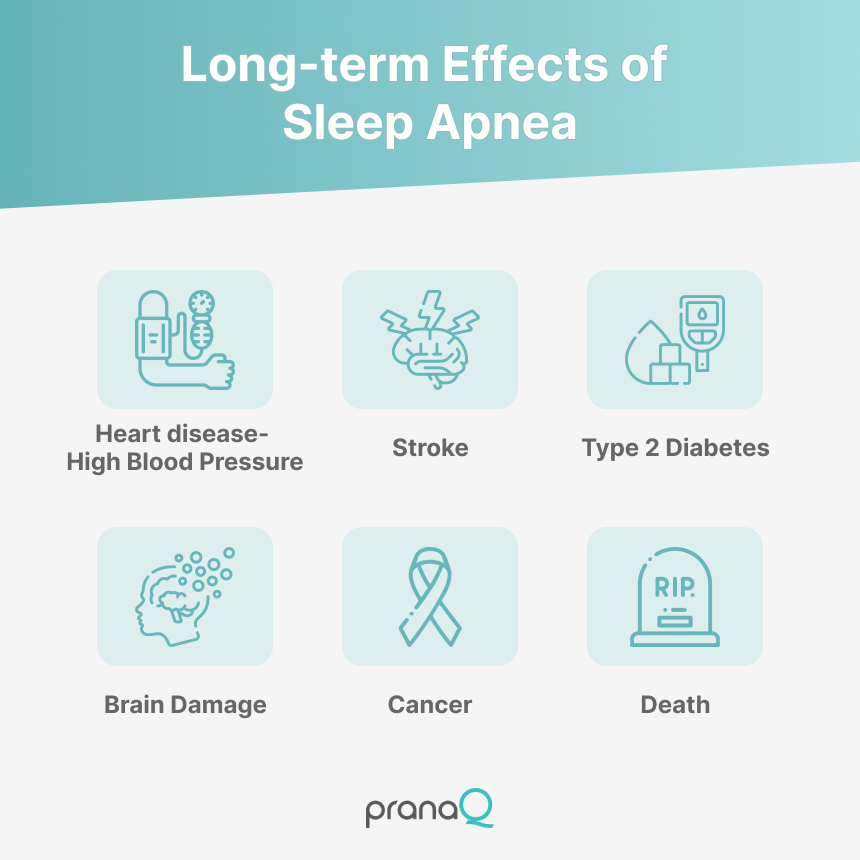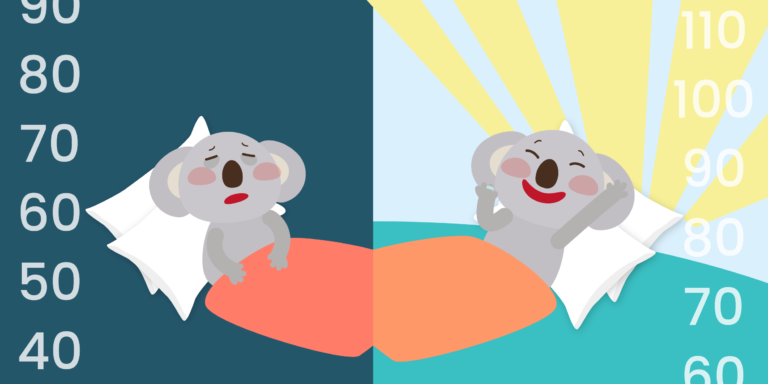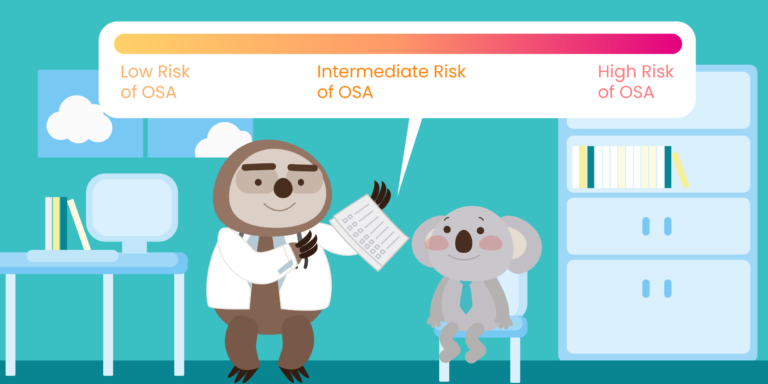Untreated Sleep Apnea Life Expectancy
Are you new to the field of sleep apnea or have you recently been diagnosed with sleep apnea?
Sleep apnea may sound very scary if you are new here and wondering if it is dangerous. But do not worry about it! Sleep apnea will not kill you right away today, tomorrow, or in a few days! If you are wondering what sleep apnea is and if you should get treatment for your sleep apnea soon, let us guide you a little bit before answering all these questions.
What is Sleep Apnea?
Sleep apnea is a sleeping disorder in which a person’s breathing is interrupted many times during sleep, causing disturbed sleep and poor sleeping quality. The airway muscles relax several times during sleep, blocking the airway and preventing the patient from getting enough air. After breathing stops for 10 seconds or more, reflexes kick in, causing you to snore or gasp before finally breathing again.
If you are tired even after 8 hours of sleep, it means you may have sleep apnea! Even if you do not snore or gasp but suffer from excessive daytime sleepiness on and off, you should get diagnosed with sleep apnea before it is too late.
Sleep Apnea Diagnosis
Diagnosing sleep apnea should be the least of your worries because it is relatively easy and simple. There are two ways to diagnose sleep apnea, a polysomnography (PSG) and a sleep apnea test at home, like TipTraQ by PranaQ.
Polysomnography requires you to go to the nearest sleep clinic for an overnight sleep test. Instead, at-home sleep apnea tests save you this hassle. Our at-home sleep apnea test results are just as accurate as the PSG results and you can do it all from the comfort of your own home.
Our sleep apnea tracker makes diagnosing your sleep apnea easier and faster. Find out more about us!
Sleep Apnea Life Expectancy without Treatment
People suffering from sleep apnea have been reported to show signs of other health disorders that can be life-threatening, such as
- High blood pressure
- Stroke
- Heart attack
- Congenital heart disease
- Type 2 diabetes
In the Wisconsin Sleep Cohort Study, research was conducted in 1988 with an 18-year follow-up period for 1,522 participants. Among the participants, it was found that individuals diagnosed with sleep apnea in 1988 who died before follow-up in 2008 died of cardiovascular disease or stroke. The figure represents a 20% higher likelihood than those who died with the same underlying condition but without sleep apnea.
Sleep apnea without treatment does not directly shorten life expectancy. However, it does increase the likelihood that patients will develop life-threatening health conditions that result in shortened life expectancy.
What are the Side Effects of Sleep Apnea?
Sleep apnea leads to many side effects that can affect life in the short and long term. Life-threatening health disorders are some long-term side effects of sleep apnea that may shorten life expectancy. Let us find out how the short-term effects of sleep apnea differ from these and what you should be aware of with these side effects.
Short-term Effects of Sleep Apnea

These short-term effects of sleep apnea usually show up as signs of sleep apnea, which include:
- Snoring, gasping, or possibly choking
- Excessive daytime tiredness
- Finding it challenging to stay focused
- Lack of energy or motivation
- Frequent trips to the bathroom during sleep
- Constant swings or irritability
- Forgetting something easily
- Waking up with a dry throat
These short-term effects of sleep apnea occur after a restless sleep during the night. After a few cups of coffee or short naps during the day, the person returns to a normal state. However, when someone goes back to sleep at night, the same side effects return the next day.
Long-term Effects of Sleep Apnea

Long-term effects of untreated sleep apnea include all the life-threatening health disorders already mentioned, such as congenital heart disease, hypertension, stroke, and type 2 diabetes.
But the long-term effects of sleep apnea go beyond that. Certain research has found that sleep apnea can cause brain damage and even cancer.
Sleep Apnea Increases the Risk of Stroke, Cancer, and Death
In a study published by the American Academy of Sleep Medicine (2014), researchers found that sleep apnea is associated with a high risk of cancer, stroke, and death. They claim that cancer rates were 3 times higher and stroke rates were 4 times higher in patients with moderate sleep apnea than in normal people.
The results were obtained after a 20-year follow-up study among subjects who had a sleep test at home in 1990. They discovered that the mortality rate increased 4-fold among subjects with moderate and severe sleep apnea.
Mild Sleep Apnea Life Expectancy
This study claims that the follow-up study shows very little results in people with mild sleep apnea. Patients with mild sleep apnea may have a longer life expectancy because mild sleep apnea is not associated with increasing medical disorders.
Moderate Sleep Apnea Life Expectancy
Patients with moderate sleep apnea may have a similar life expectancy as patients who have severe sleep apnea. Moderate sleep apnea tends to be harmful to patients because patients have an average of AHI of 15-30 events/hour. This means that the individual stops breathing 15-30 times per hour during sleep.
Patients with moderate sleep apnea should start sleep apnea treatment immediately.
Severe Sleep Apnea Life Expectancy
Severe sleep apnea shortens life expectancy, in the worse case by as much as 4 times. Individuals with severe sleep apnea from the study reported having strokes and even cancer before they died, proving how much severe sleep apnea can be very destructive to someone’s health.
Sleep Apnea Disturbs Brain Function
The study conducted by UCLA School of Nursing, claims that sleep apnea patients have changes in levels of glutamate and gamma-aminobutyric acid (GABA). These are important brain chemicals responsible for regulating thinking, emotions, and certain physical functions such as blood pressure and perspiration.
Paul Macey, the lead researcher of the study mentioned that glutamate levels increase in people with sleep apnea and that high levels of glutamate are toxic to the brain. Not to mention that GABA, the chemical messenger responsible for slowing and calming people down, also decreases. Instead of increasing, GABA decreases among patients with sleep apnea.
Sleep Apnea Reduces Brain Gray Matter Concentration in Brain
The third study comes from a journal published at SLEEP. It shows that in patients with OSA, the concentration of gray matter concentration in the brain (cerebral cortex) may be reduced. This is where information processing takes place in the brain, and if sleep apnea is left untreated, it can lead to further damage.
Loss of gray matter concentration can affect the brain’s ability to control the cardiovascular system, manage emotions, and control certain autonomic functions, such as breathing, salivary secretion, and blood pressure.
Life expectancy with Treated Sleep Apnea
For all patients diagnosed with sleep apnea, treatment is recommended to reduce potential health problems that come with sleep apnea.
A Danish study published in the Journal of the American Heart Association (2018) showed that the risk of heart failure was 38% higher in people over age 60 with untreated sleep apnea in a 13 year-study.
Treating sleep apnea gives individuals a chance to live longer by reducing the risk of premature death by 3 times, cutting the risk of stroke in half, and the likelihood of heart attack by five times compared to people with untreated sleep apnea.
Sleep Apnea Treatments

Now that we all know that sleep apnea is treatable and treated sleep apnea increases life expectancy many times over, it is time to get treated!
Although sleep apnea is not 100% curable at this time, it is managed with the right treatments and a change in habits. There are very specific treatments for sleep apnea compared to other health disorders, as it cannot be treated with medication alone.
Continuous positive airway pressure (CPAP) and Bi-level positive airway pressure (BiPAP)
When it comes to sleep apnea treatments, CPAP is the first treatment option sleep physicians recommend for patients with moderate to severe sleep apnea. The CPAP machine helps keep the patient’s breathing track open by passing a continuous stream of positive-pressure air through a mask that covers the mouth and nose or just the nose.
With more than 8 million CPAP users in the U.S., CPAP is currently the most common medical treatment for sleep apnea. CPAP not only helps relieve sleep apnea symptoms but also reduces the risk of heart failure and increases life expectancy.
BiPAP is also a different type of positive airway pressure therapy through the device, but it controls both inlet and outlet pressure within the airway.
Both CPAP and BiPAP have different settings for how much pressure a person can withstand depending on the severity of their sleep apnea and their health status. Therefore, CPAP and BiPAP devices should only be used after a doctor’s prescription and fitting.
Sleep Apnea Mouthpiece
Another medical treatment alternative for sleep apnea patients is a sleep apnea mouth guard or mouthpiece. The mouthpiece moves the tongue or jaw forward by holding it in the same position, allowing the airway to remain open during sleep.
This treatment is one of the most popular options for patients whose sleep apnea is caused by a small lower jaw or a large tongue that falls back into the throat. The mouth guard shifts the lower jaw forward or some also adjust the position of the tongue forward to open up the airway.
Many sleep apnea patients who cannot accept CPAP therapy opt for this treatment. CPAP or BiPAP often causes claustrophobia and discomfort. However, CPAP or BiPAP is still more preferred over mouthpieces because they have been shown to be more effective in treating sleep apnea. Sleep apnea mouthpieces can also alter the position of the teeth or bite. Therefore, mouthpieces should be fitted with prescriptions from sleep doctors, dentists, or orthodontists together.
Changing Lifestyle
CPAP and mouthpiece are sleep apnea treatments for patients with moderate sleep apnea and even severe. However, if a patient has been diagnosed with mild sleep apnea, doctors recommend managing symptoms with a healthier lifestyle, which can be through developing exercises habit, quitting smoking, losing weight, and more.
Using CPAP or a mouthpiece in conjunction with lifestyle changes can enhance the benefits of sleep apnea treatment and increase life expectancy even more!
Sleep apnea surgery
If CPAP, mouthpiece or even lifestyle changes do not improve sleep apnea symptoms, surgery is the last resort for treatment. There are several options for sleep apnea surgeries: uvulopalatopharyngoplasty, radiofrequency volumetric tissue reduction, anterior inferior mandibular osteotomy, maxillomandibular advancement, tongue base reduction, and many more.
Sleep apnea surgeries, however, must be thoroughly considered as there are many potential risks associated with the procedure, such as an allergic reaction to anesthesia, excessive bleeding, or infection. In the worst case, symptoms do not improve and additional breathing problems may develop.
Because of the potential complications, doctors always recommend trying other treatments for more than three months before deciding to have sleep apnea surgery. Always work with your sleep physician to determine the best sleep apnea treatment before undergoing surgery.
The Life Expectancy of Sleep Apnea Patients
All in all, the life expectancy of sleep apnea patients is not shortened immediately and drastically but depends on the severity of sleep apnea, the symptoms, and whether it is treated or not.
Sleep apnea is maybe around you without you realizing it, whether it is yourself or your loved ones. Be sure to get checked for sleep apnea with TipTraQ!
References:
- https://www.webmd.com/sleep-disorders/sleep-apnea/sleep-apnea
- https://www.soundsleepmedical.com/blog/what-are-the-long-term-effects-of-obstructive-sleep-apnea/
- https://aasm.org/study-shows-that-people-with-sleep-apnea-have-a-high-risk-of-death/
- https://www.sleepbetterny.com/will-sleep-apnea-affect-your-life-expectancy/
- https://www.hopkinsmedicine.org/health/wellness-and-prevention/the-dangers-of-uncontrolled-sleep-apnea
- https://www.ncbi.nlm.nih.gov/pmc/articles/PMC2817910/
- https://www.sleepfoundation.org/sleep-apnea/sleep-apnea-mouth-guard
- https://www.healthline.com/health/surgery-for-sleep-apnea







